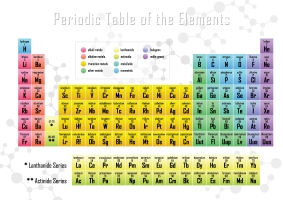
Magnesium and stomach acid have a strong correlation. Without the proper amount of stomach acid, magnesium does not absorb. Plenty of individuals have low acid levels, such as the elderly. People with conditions such as arthritis, osteoporosis, gallbladder, and gum diseases are deficient in hydrochloride acid.
People who use antacids can not absorb magnesium efficiently. Antacids neutralize natural stomach acids. Minerals can not be interested. Food can be digested properly.

According to Dr. Carolyn Dean’s book The Magnesium Miracle, people who use calcium carbonate antacids lose more magnesium. A significant amount of calcium requires magnesium. The more calcium we get, the more magnesium is used to keep calcium in control. The balance must be everywhere.
Without the proper amount of stomach acid, magnesium does not absorb. Plenty of individuals have low acid levels, such as the elderly. People with conditions such as arthritis, osteoporosis, gallbladder, and gum diseases are deficient in hydrochloride acid.
Why does the body not produce enough stomach acid?
There are reasons why the production of stomach acid slows down or is interrupted by outside sources.
- Elderly
- Osteoporosis
- Arthritis
- Gum disease
- Gallbladder disease
- Diabetes
- Antacids
Severe stress can lead to low secretion of stomach acid, too. I guess that we have plenty of pressure around, do we?
These reasons interfere with magnesium absorption. You see how everything in the body is connected. One deficiency or excessive amount leads to disruption of essential body functions.
No stomach acid, no magnesium around in the body
People know magnesium, which comes in a few different forms. There are organic salt chelates and inorganic salts.
- Magnesium Oxide
- Magnesium Taurate
- Magnesium Glutamate
- Magnesium Phosphate
- Magnesium Sulfate
- Magnesium Chloride
- Magnesium Citrate
There are more forms of magnesium, but you see that magnesium is not alone—magnesium is connected with the ligand. For example, the traditional magnesium citrate consists of metal magnesium and ligand citric acid.
When magnesium supplement reaches the stomach, the hydrochloric acid helps separate mineral compounds, in this case, the magnesium citrate. Magnesium can be absorbed just in the ionic form. Stomach acid helps break magnesium citrate and release magnesium ions.
You see that stomach acid is vital for magnesium absorption. Magnesium and stomach acid correlation is essential for everybody who wants a correctly functioning body.
Calcium comes to the scene
Calcium and magnesium have high correlations, too. When stomach acid is deficient, magnesium can not participate in calcium functions. Calcium goes to cells with the help of magnesium.
As you see, in the body, everything is connected. Magnesium deficiency leads to an overload of calcium.
The acidic environment in the stomach helps calcium dissolve; however, if there is not enough stomach acid, calcium goes to the small intestine, where the alkaline environment is. Without magnesium, calcium can not be dissolved. This mineral wanders around and deposits in the soft tissues of the body. Not so much fun, yes?
Magnesium and stomach acid need each other
Magnesium and stomach acid are essential players in body metabolism. Dr. Carolyn Dean, M.D., N.D. Emphasizes the importance of low magnesium and stomach acid to calcium activity.
Magnesium and stomach acid must be in original amounts because the body can function well with the proper nutrients.
Stomach acid is not a nutrient. It is hydrochloric acid. However, it has a connection with mineral activity. Everything depends on each other.
You would ask what to do if stomach acid is deficient and does not perform its functions well.
We need magnesium, which goes straight to the cell. Do I know it? Yes. ReMag is liquid, pico-ionic magnesium absorbed at 100 percent. You can find information here if you want to read more about ReMag.
















